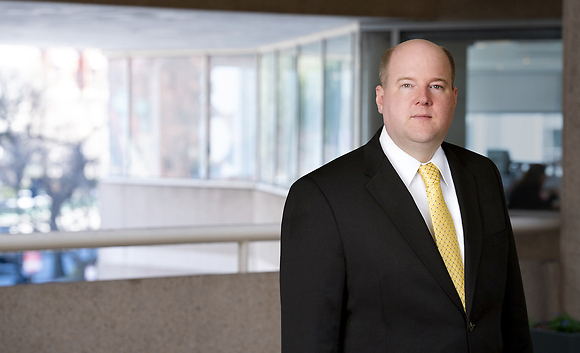The First Circuit Joins Several Other Circuit Courts in Finding That Creditors' Committees Have an Unconditional Right to Intervene in Adversary Proceedings
On September 22, 2017, the First Circuit Court of Appeals held that § 1109(b) of the Bankruptcy Code (the “Code”) provides a creditors’ committee with an “unconditional right to intervene” in an adversary proceeding.[1] In reaching this conclusion, the court reversed the District Court for the District of Puerto Rico’s order denying an intervention motion and distinguished its own precedent, on which the District Court had relied. This decision further bolsters the right of creditors’ committees to intervene in and to be heard on all matters within a bankruptcy case and positions the First Circuit in line with the Second and Third Circuits, which both have similarly concluded that the Code affords an unconditional right to intervene.
Background
Puerto Rico has been mired in a protracted debt crisis for years. Unlike U.S. states, however, Puerto Rico, a U.S. territory, is prohibited from authorizing its municipalities to pursue bankruptcy relief under Chapter 9 of the Code. In 2014, in an attempt to restructure its overwhelming debt, Puerto Rico fashioned its own municipal insolvency law modeled after Chapter 9. The Supreme Court ultimately rejected the legislation, concluding that it was preempted by the Code.[2] In response, Congress enacted the Puerto Rico Oversight, Management and Economic Stability Act (“PROMESA”) in 2016.[3] PROMESA created a mechanism through which Puerto Rican instrumentalities could pursue “quasi-bankruptcy proceedings,” referred to as “Title III,” and expressly incorporated large swaths of the Code, including the Federal Rules of Bankruptcy Procedure.[4]
On May 3, 2017, the PROMESA Financial Oversight and Management Board (the “Board”), commenced its debt adjustment case under the statute, which amounted, essentially, to the filing of a bankruptcy petition.[5] Certain insurers immediately commenced an adversary proceeding within the Title III case.[6] The insurers argued that the proposed fiscal plan, approved by the Board and recently enacted through Puerto Rican legislation, violated PROMESA and the U.S. Constitution.[7] They sought declaratory and injunctive relief. Shortly thereafter, in June 2017, a creditors’ committee (the “UCC”) was appointed.[8] The UCC immediately filed a motion seeking leave to intervene in the adversary proceeding pursuant to Bankruptcy Rule 7024.[9] This rule simply provides that Rule 24 of the Federal Rules of Civil Procedure “applies in adversary proceedings.” Rule 24 in relevant part provides that “the court must permit anyone to intervene who . . . is given an unconditional right to intervene by a Federal Statute.”[10] The UCC argued that § 1109(b) of the Code conferred precisely such an “unconditional right.”[11] Section 1109(b) of the Code provides in relevant part that any “party in interest,” specifically defined to include a creditors’ committee, “may raise and may appear and be heard on any issue in a case under this chapter.”[12] The UCC also argued, in the alternative, that it was entitled to permissive intervention under Rule 24(b).[13] The plaintiff insurers opposed the intervention attempt, while the Board filed a limited objection.[14]
The District Court’s Opinion
The District Court denied the UCC’s motion to intervene.[15] In reaching its decision, the court relied exclusively on a footnote from a First Circuit decision, In re Thompson, in which the First Circuit stated that § 1109(b) “does not afford a right to intervene under Rule 24(a)(1).”[16] The District Court also rejected the UCC’s request for permissive intervention under Rule 24(b).[17]
The First Circuit’s Opinion
In reversing the District Court, the First Circuit began by explaining that the footnote the District Court relied upon in reaching its conclusion was “pure dicta.”[18] For this reason, the Court explained, it was nonbinding and, regardless, unlike the District Court, it “posses[ed] a greater degree of flexibility . . . with respect to . . . [its] own precedents.”[19] The Court explained that Thompson, a Chapter 7 case, did not purport to interpret § 1109(b), which applies only in Chapter 11 proceedings, and instead was predicated on the First Circuit’s conclusion that a putative appellant, a non-party, did not have standing to appeal a bankruptcy court order approving settlement of an adversary proceeding.[20]
After establishing that Thompson did not control the analysis, the Court then considered “afresh whether § 1109(b) confers an unconditional right to intervene in an adversary proceeding.”[21] The Court concluded that it did based on the plain text of § 1109(b).[22] In reaching this conclusion, the Court joined the Second and Third Circuits, which have similarly found an unconditional right to intervene, and rejected the Fifth Circuit’s Fuel Oil analysis, which concluded that § 1109(b) did not apply in adversary proceedings.[23] The court, inter alia, noted that since Fuel Oil was decided, over thirty years ago, the weight of persuasive authority had shifted considerably away from Fuel Oil’s holding.[24]
Citing discussion by both the Second and Third Circuits, the First Circuit explained that the statutory language of § 1109(b) is broad and confers on a creditors’ committee the right to “appear and be heard on any issue in a case.”[25] The Court concluded that Congress intended “case” to be a “broadly inclusive term” and that as used in the bankruptcy context “case” refers to the litigation commenced by the filing of a petition.[26] In contrast, “proceedings” are particular subsidiary disputes that arise within the larger case.[27] Because § 1109(b) does not distinguish between different types of proceedings, the statute must apply to all proceedings within the larger bankruptcy case, including adversary proceedings. Since a creditors’ committee may be heard on any issue in the overarching case, it may necessarily be heard on any issue in a subsidiary proceeding of that case, such as an adversary proceeding. The court further concluded that “the rights conferred by § 1109(b) are unconditional, as the provision imposes no conditions whatsoever on the ability of a party in interest to raise issues.”[28]
The court did, however, caution that its finding of an unconditional right does not “dictate the scope of that participation.”[29] court thus recognized that while the right to intervene is unconditional, it is not an unqualified right. It explained that the “precise scope of . . . intervention is a matter committed to the district court’s ‘broad discretion.’”[30] Since the district court denied the UCC’s motion to intervene, it did not consider the scope of intervention, and for this reason, the court remanded this question to the District Court for consideration.
Conclusion
This ruling further substantiates the robust rights of creditors’ committees to participate in all aspects of a bankruptcy case, including adversary proceedings. It also evidences a growing Circuit trend toward recognizing the existence of an unconditional right to intervene and a rejection of the Fifth Circuit’s Fuel Oil analysis, which had previously prevailed for many years.
Todd Phillips and Kevin Maclay are Members in Caplin & Drysdale’s Bankruptcy Group in the firm’s Washington, D.C., office. Sally Sullivan is an Associate in the Group.
To view this article on Lexology’s website, please visit this link (subscription required) and see below for any additional coverage.
- Mondaq (subscription required)
__________________
[1] Assured Guar. Corp. v. Fin. Oversight and Mgmt. Bd. For Puerto Rico (In re Financial Oversight and Management Board for Puerto Rico), 872 F.3d 57 (1st Cir. 2017).
[2] See Puerto Rico v. Franklin California Tax-Free Tr., 136 S. Ct. 1938 (2016).
[3] In re Fin. Oversight, 872 F.3d at 59.
[4] Id.
[5] Id. at 60.
[6] Id.
[7] Id.
[8] Id.
[9] In re Fin. Oversight, 872 F.3d at 60.
[10] Fed. R. Civ. P. 24(a)(1).
[11] In re Fin. Oversight, 872 F.3d at 60-61.
[12] 11 U.S.C. § 1109(b).
[13] In re Fin. Oversight, 872 F.3d at 60-61.
[14] Id. at 61.
[15] Id.
[16] Id. (citing In re Thompson, 965 F.2d 1136, 1142 n.8 (1st Cir. 1992)).
[17] Id.
[18] Id.
[19] In re Fin. Oversight, 872 F.3d at 62 (internal quotations omitted).
[20] Id. at 61-62. In reaching its conclusion the court noted that “mere participation in a hearing on the approval of a settlement did not constitute de facto intervention” and included the footnote discussed above noting “similar limitations on participation by ‘parties in interest’ are recognized elsewhere under the Code,” citing § 1109(b) as an example. Id. at 62 (internal quotations omitted).
[21] Id. at 62.
[22] Id. at 62-63.
[23] Fuel Oil Supply & Terminaling v. Gulf Oil Corp., 762 F.2d 1283 (5th Cir. 1985).
[24] In re Fin. Oversight, 872 F.3d at 62.
[25] Id. at 63.
[26] Id.
[27] Id.
[28] Id.
[29] In re Fin. Oversight, 872 F.3d at 64.
[30] Id.

